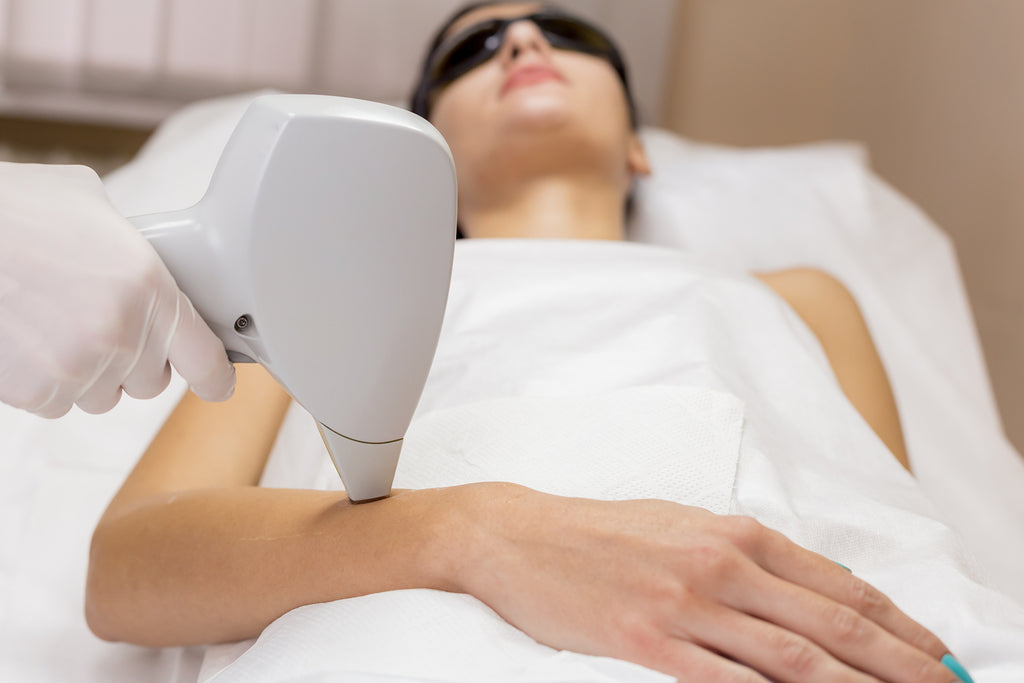Why Lasers Aren't Right for Everyone

Lasers are all the rage in the skincare world these days. They’re touted as a non-invasive way to reduce unwanted hair, fine lines, wrinkles, sunspots, and scars, so they might seem like the perfect solution to all your skincare problems.
But after 15 years in the industry, I’ve seen some terrible side effects from laser procedures, and I want my clients to be informed before they have one.
What are the types of lasers and laser procedures?
The two main cosmetic laser procedures are laser hair removal and laser skin resurfacing. During laser hair removal, hair follicles are destroyed using pulses of laser light. Various lasers of different wavelengths can be used, including the Ruby and YAG lasers.
Laser skin resurfacing is said to improve the appearance of wrinkles, fine lines, scars, and sun-damaged or otherwise hyperpigmented skin. Ablative lasers, such as CO2 and Erbium penetrate deeply and remove thin layers of skin, so they can be painful and require local anesthetic injections. Non-ablative lasers, including the Alexandrite and Diode, are less invasive and don’t require the same recovery time as ablative lasers. Then there are fractional lasers, such as Fraxel, which can be ablative or non-ablative.
What are the possible side effects of lasers?
From what I’ve seen with my clients, only a small proportion of people who are treated with lasers are good candidates or have been properly evaluated. If you have pale skin and dark hair, you’re probably a good candidate for laser hair removal. If your skin is olive, it will remove the hair, but it will also remove surrounding melanocytes – cells that produce melanin, a dark pigment responsible for skin color – and you could end up with a white spot where the hair was.
As for laser skin resurfacing, the effects are only temporary in most cases. Rosacea conditions return, and I’ve often seen hyperpigmentation come back with a vengeance.
Many of my clients have come to me with skin damaged by lasers, especially on their chests. Chests are more vulnerable to the side effects of hypopigmentation, or loss of skin color due to melanocyte depletion, because the lipidic layer on the chest and neck is about 40 percent thinner than on the face. I’ve also seen peeling skin after laser treatments. Fraxel seems to be particularly destructive. There’s no reason under any circumstances to burn one of your most precious organs.
If you choose to have a laser procedure, do your research on the best laser centers and choose a highly qualified doctor to perform it because they will have a greater responsibility than a technician if something goes wrong. Be very inquisitive as a client – ask lots of questions about potential side effects. And have the procedure about two months after sun exposure when your skin is most pale because this is the safest time to do it.

